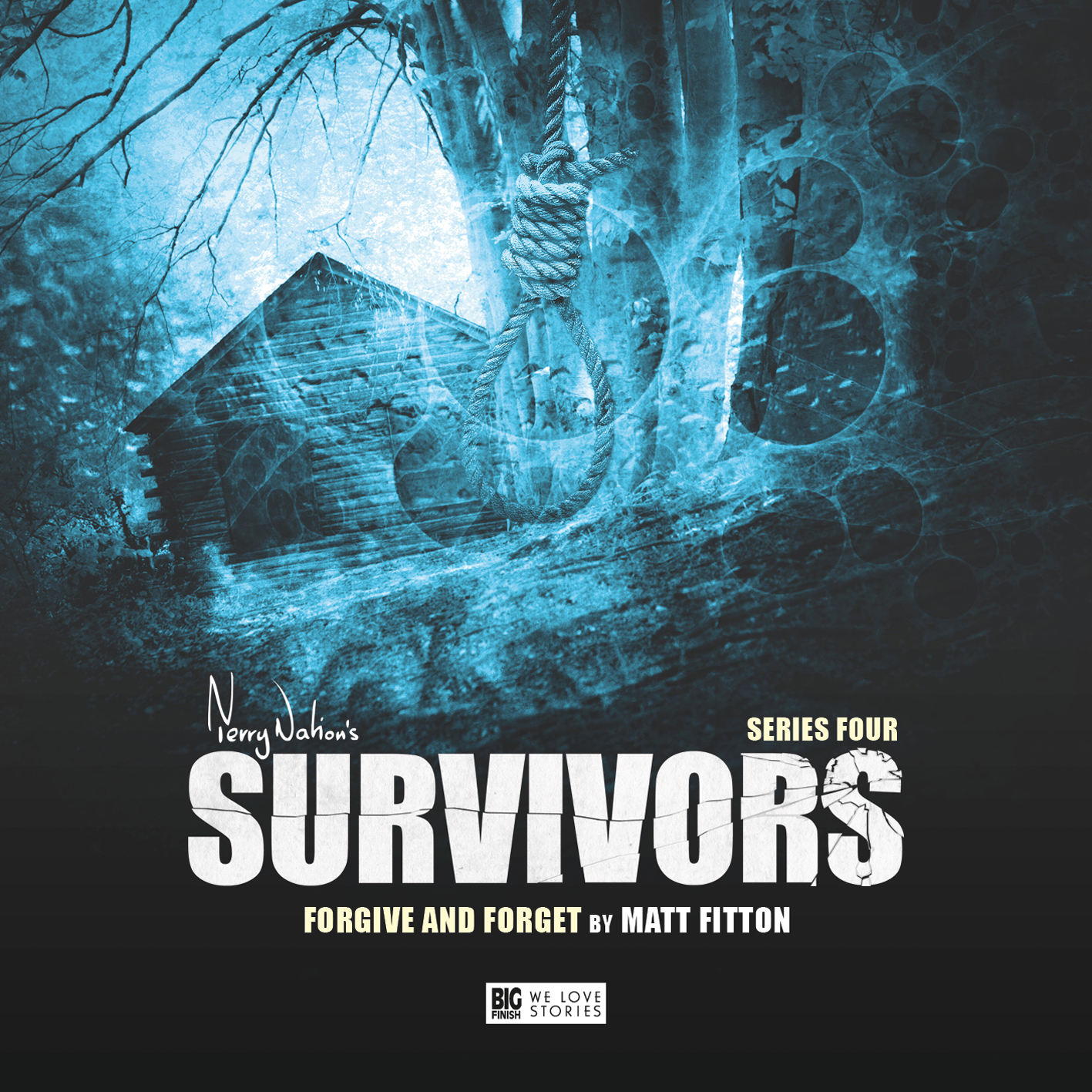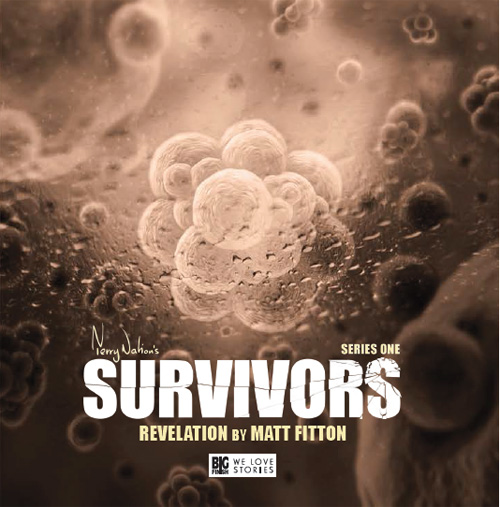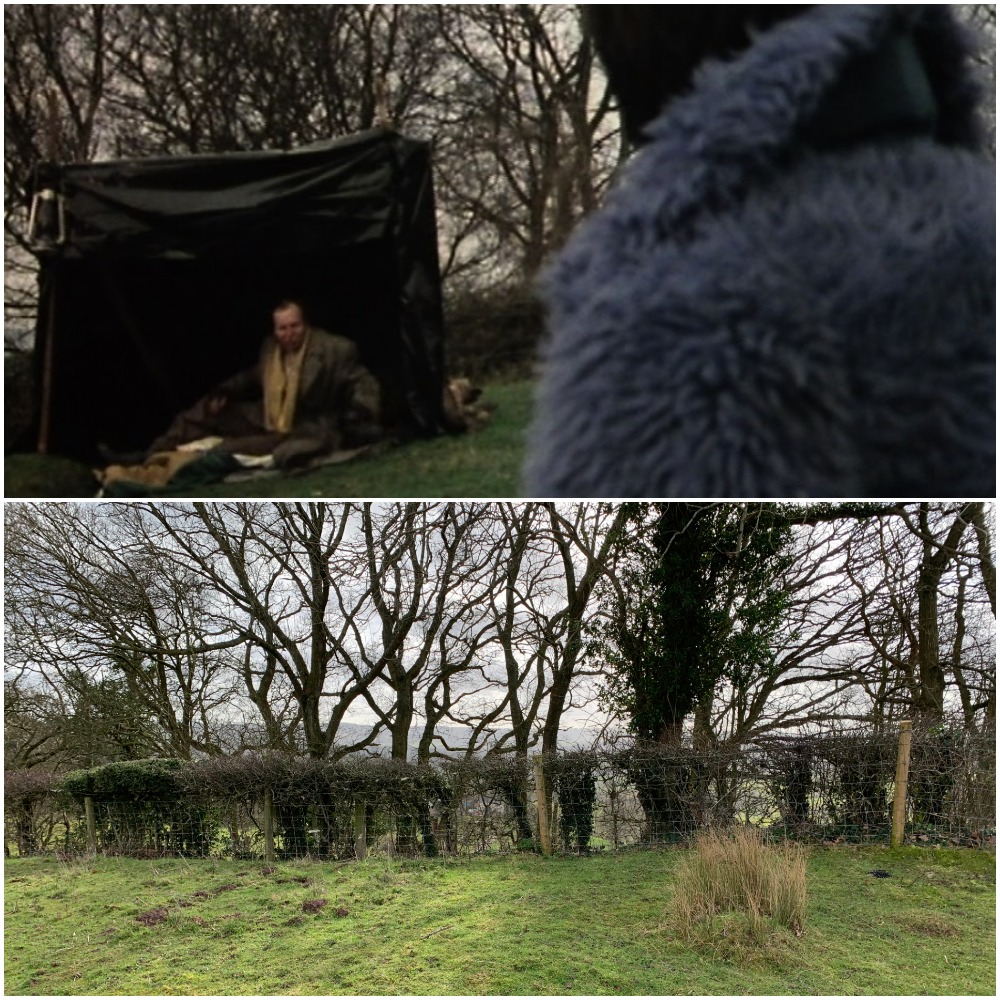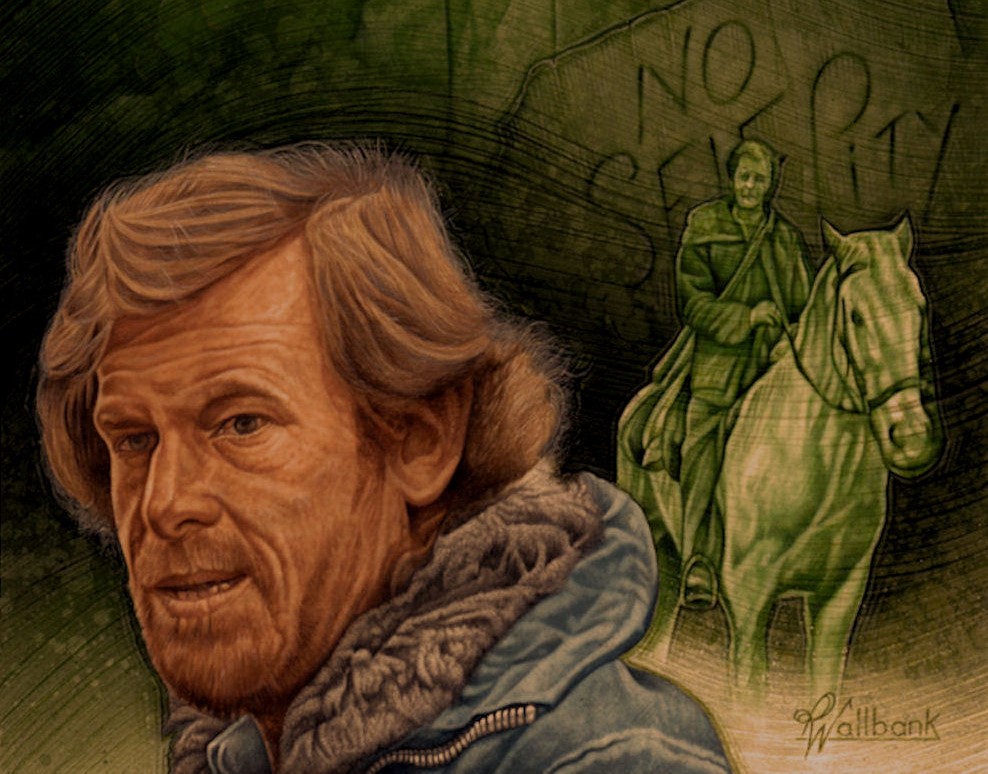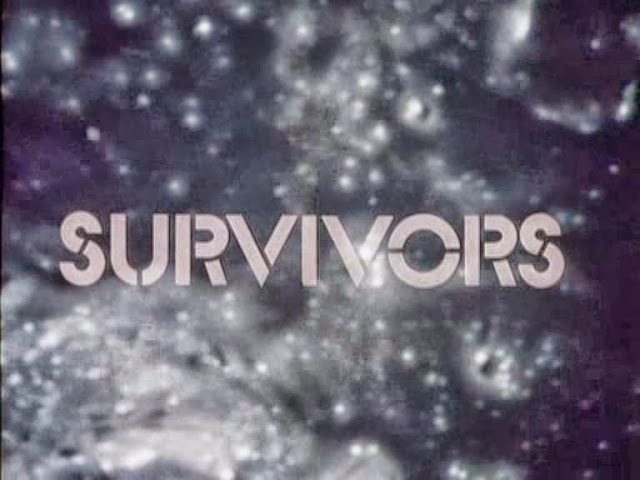
EACH OF THE three series of Survivors has its own distinctive atmosphere and set of narrative themes and preoccupations — this reflected producer Terry Dudley's determination to overhaul and refresh the ethos of the programme with each new series.
Series one
The first series is concerned with the calamity and devastation of The Death, which wipes out more than 95% of the population of planet Earth: a global catastrophe which occurs largely unseen in the events of the opening episode The Fourth Horseman. The first thirteen episodes of the show deal with the reaction of the initial disparate and scattered groups of survivors, the coming together of the first settlements and moves on to focus on the efforts of the Grange community - founded by Abby, Greg and Jenny - to cope with the various trials, challenges and threats by which they are confronted. A recurring theme of the first six episodes is the effort of Abby Grant to locate her missing son Peter, away at boarding school at the time the pandemic strikes, who she hopes may have been fortunate enough to have survived the catastrophe. Her efforts are given an unexpected, and very positive, resolution in the closing episode of series one, A Beginning.

Series two
Series two of Survivors is concerned in principle with the business of long-term survival. Moving past the first efforts at coping and adjustment, and going on from the initial shock and chaos that followed The Death. Beginning in Birth of a Hope with the devastating fire which decimates the Grange community and takes the lives of so many of the first series' ensemble cast, the second series depicts the arrival of the surviving refugees at Whitecross. Focusing on the travails of the Whitecross community, headed by the charismatic figure of Charles Vaughan, series two combines introspective stories which focus on the tensions of communal living; the challenges of the collective-run smallholding; and the place of faith, commitment, self-preservation and self-sacrifice; alongside outward-looking action and adventure-orientated stories – all within the context of the struggle to survive. Series two concludes with the dramatic opening up of the vista of Survivors. In New World, the arrival of visitors from Norway leads the Whitecross settlers to agree to move beyond simple pastoral self-sufficiency to support a concerted effort for countrywide economic and social revival. As a result, the show's main protagonists leave the settlement behind to become involved with a pan-European plan for industrial and political recovery.

Series three
The third and final series of Survivors is concerned with the business of long-term revival and reconstruction. The events of the opening episode Manhunt set in motion the programme's new twin themes: the effort of Jenny, Charles and Hubert to locate and reunite with the missing Greg Preston (now returned from Norway and roaming the country as an autonomous emissary for the Norwegian plan, rallying support for the reconstruction project); and their separate and combined efforts to put that ambitious plan into practice. These themes are ultimately resolved in the events of the show's final three episodes. In The Last Laugh, Greg exacts deadly revenge on a group of rapacious roving bandits - by isolating and infecting them with the smallpox he knows will shortly take his own life. Following Greg's demise, the series concludes with a series of triumphs for the vanguard group of British survivors - ending with the formation of a governing council, the revival of trade and the return of a primitive monetary system in Long Live the King and the reconnection of the first electric power supplies, in the series' finale Power.

Cite this web page
Cross, R. (2021). 'Survivors themes and plot 'arcs',' [online] Survivors: A World Away, 31 January. Available at: https://survivors-mad-dog.org.uk/a-world-away/Basics_Themes.php. Accessed on: 03 March 2026.
Current style: Harvard
TAGS

